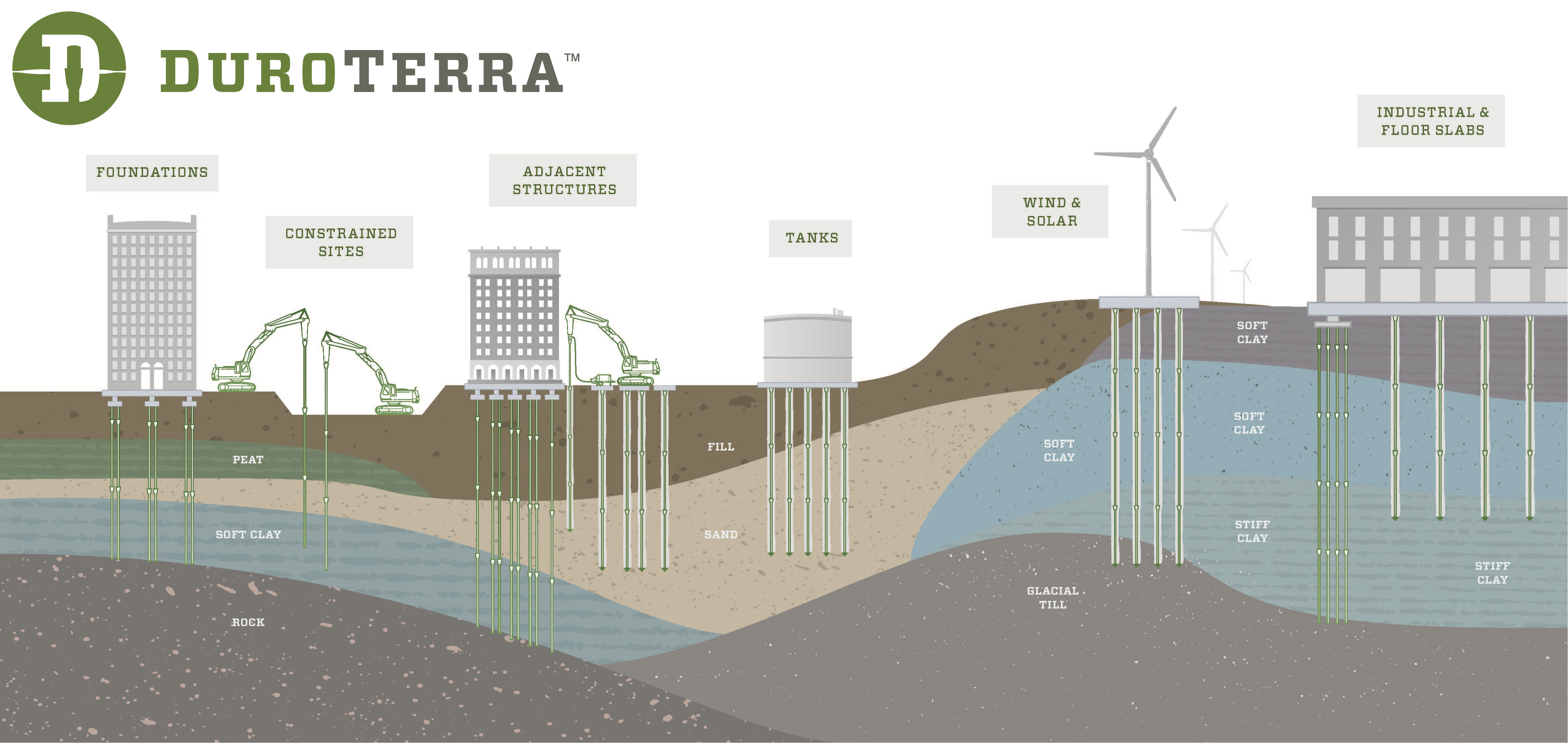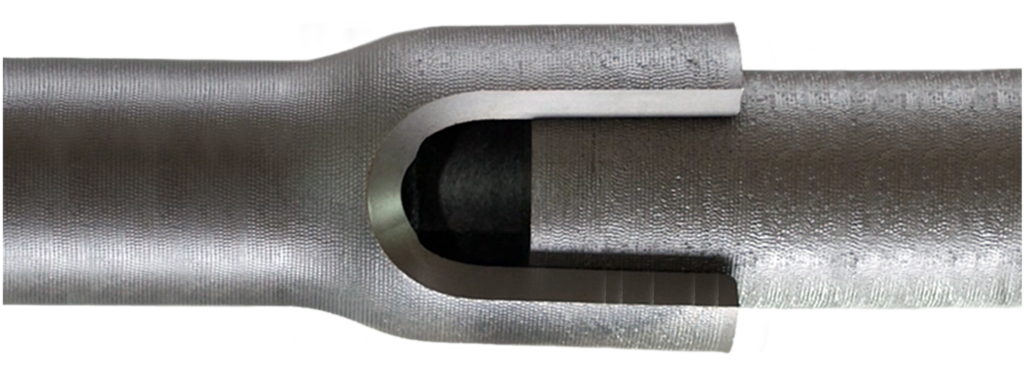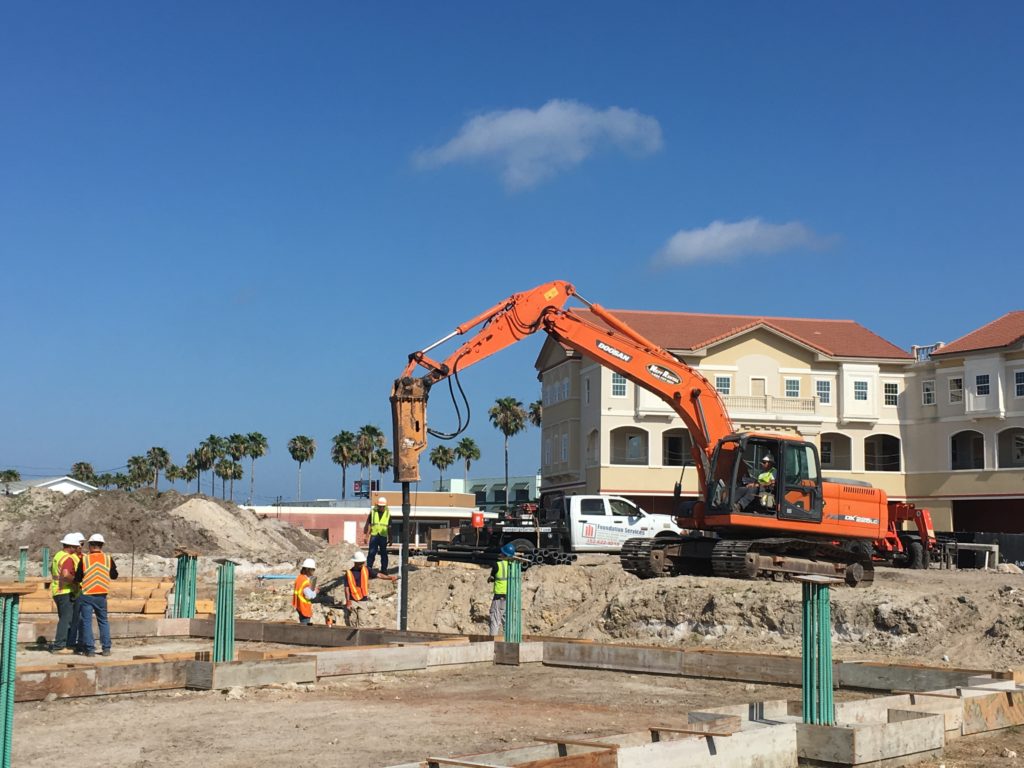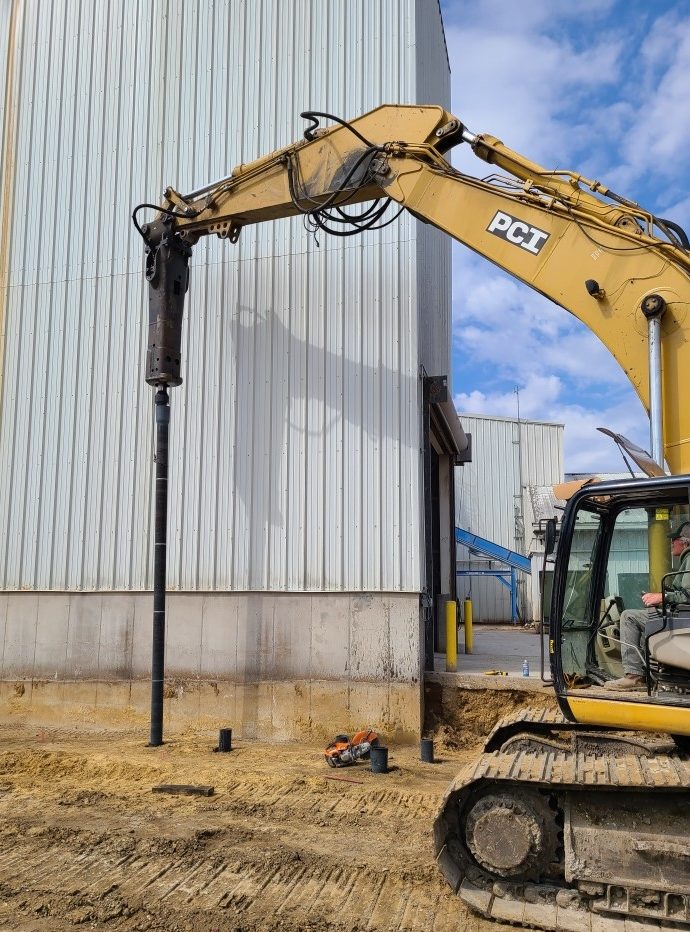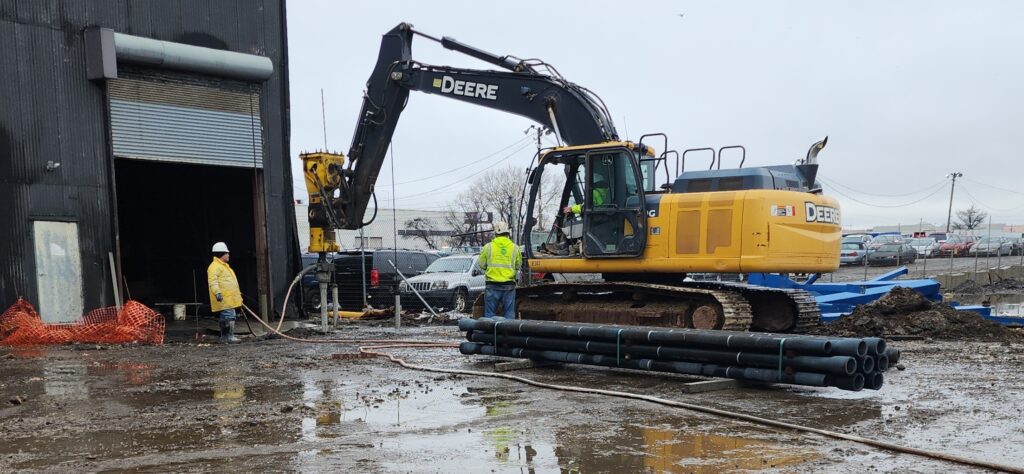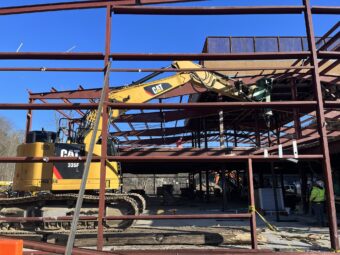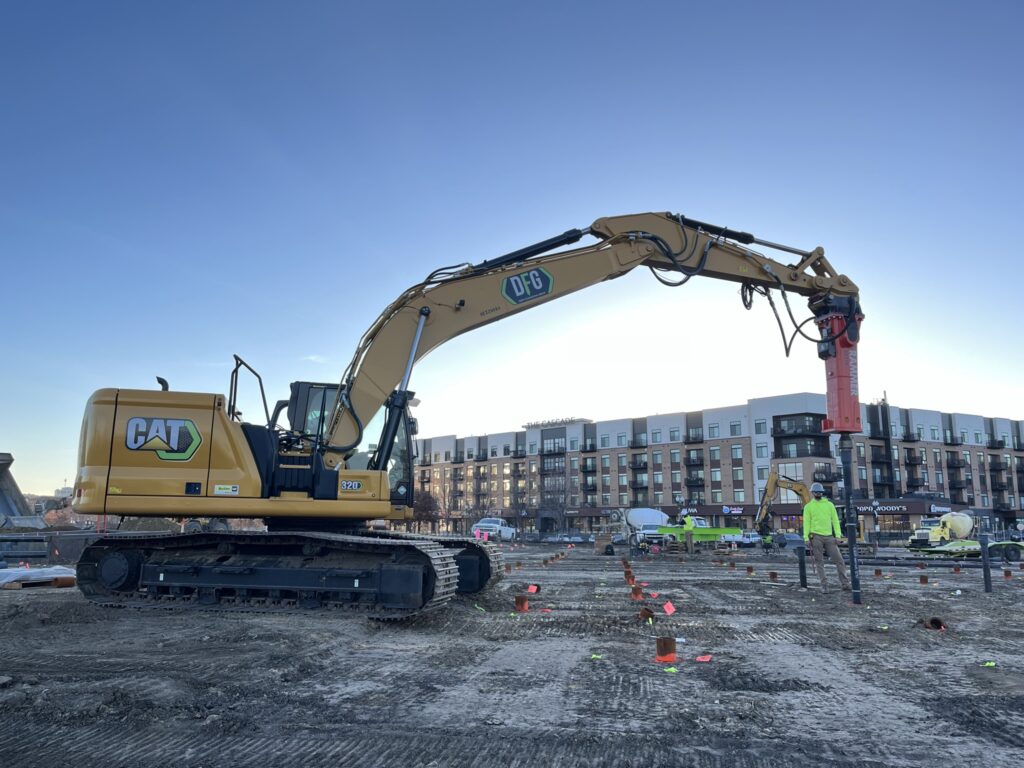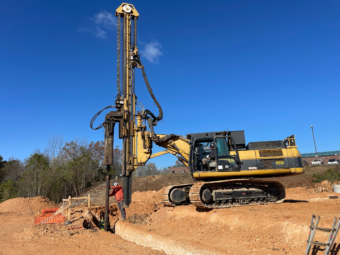Between Bedrock and a Hard Place…or Not.
Between Bedrock and a Hard Place…Or Not.
Unanticipated ground conditions are a risk that can appear on any project. Something as simple as deeper rock depths discovered during construction can derail the foundation budget and schedule. Is the on-site equipment adequate to reach the deeper rock or is larger equipment required? Are the pile lengths sufficient to reach the deeper rock or will new piles have to be ordered? Is field splicing now required? How long will this delay the job? Unfortunately, these scenarios are common and result in longer installation times and greater cost for deep foundations.
If you want to proactively manage these risks on your project, Ductile Iron Piles are a versatile deep foundation option that substantially mitigate the risk for variable bearing depths. The unique Plug and Drive connection allows the modular pile sections to be installed to nearly any practical depth without delay. Following insertion of the tapered end into the socketed end, the pile forms a friction weld during the driving process that creates a moment-resisting connection. Using the Plug and Drive connection, Ductile Iron Piles have been installed to depths of more than 175 feet – making it easy to respond to changes in bearing depths without skipping a beat. Ductile Iron Pile system can continue without delay to keep foundation construction on track.
Check out the following projects where uncertainty in rock depths were easily managed with the Ductile Iron Pile system. Interested in learning more about Ductile Iron Piles or reducing the risk for delays on your project? Please reach out to us!
Relevant projects
After construction work ground to a halt in the mid-2000’s, the new 3-story mixed-use project resumed after more than a decade. The soil conditions were highly variable with very loose to dense sand and stiff clay overlying limestone bedrock with varying degrees of weathering. SPT N-values in the limestone ranged from 2 bpf to 50 blows/0”. With anticipated depths of competent rock ranging from less than 20 feet to more than 45 feet, the project selected Ductile Iron Piles to help manage the risk for uncertain pile lengths and keep deep foundation construction on schedule. Series 118/7.5 Ductile Iron Piles were designed with a working capacity of 40 tons by driving to achieve “set” into the competent limestone. Full-scale load testing confirmed only about 0.3 inches of movement at the design load. The Ductile Iron Pile system provided a rapid solution to manage the rock variability and deliver quality performance.
Construction of a loadout facility expansion at the Ag Partners FeedMill Facility required a low vibration solution for support of foundations adjacent to the existing loadout structure. Borings for the original facility encountered 20 feet of fill followed by loose sand and soft silt and clay with rock encountered at about 30 feet. With column loads upwards of 540 kips, the team decided on a deep foundation system consisting of low vibration, driven Ductile Iron Piles. A total of 60 piles designed for an 80 ton working capacity was planned. Installation of the load test pile confirmed rock was at only 25 feet. Following successful compression load testing, production pile installation immediately proceeded, but it soon became apparent that the depth to rock increased significantly from one end of the building to the other. Production piles ranged from only 25 feet near the existing facility to more than 55 feet at the opposite end. Additional modular pile sections were easily added to the Ductile Iron Piles in the deeper rock areas to extend the piles to achieve set on the rock. The pile installations proceeded without delay and all 60 piles were installed in one week.

